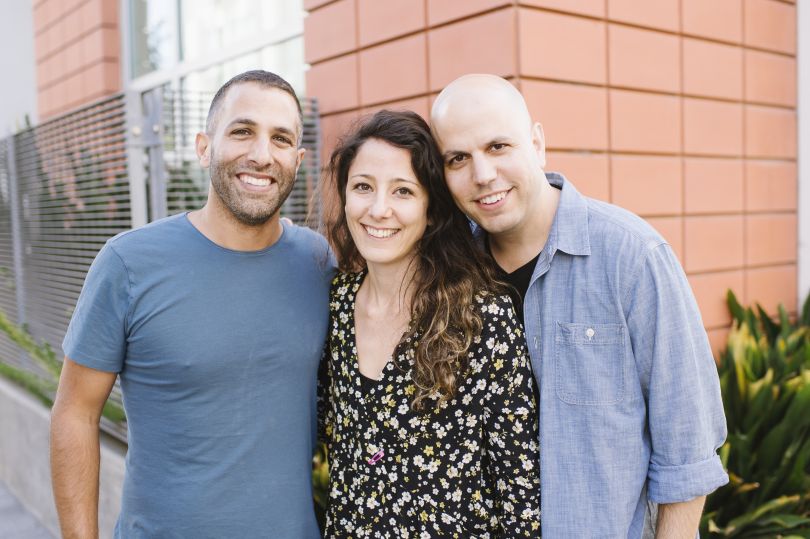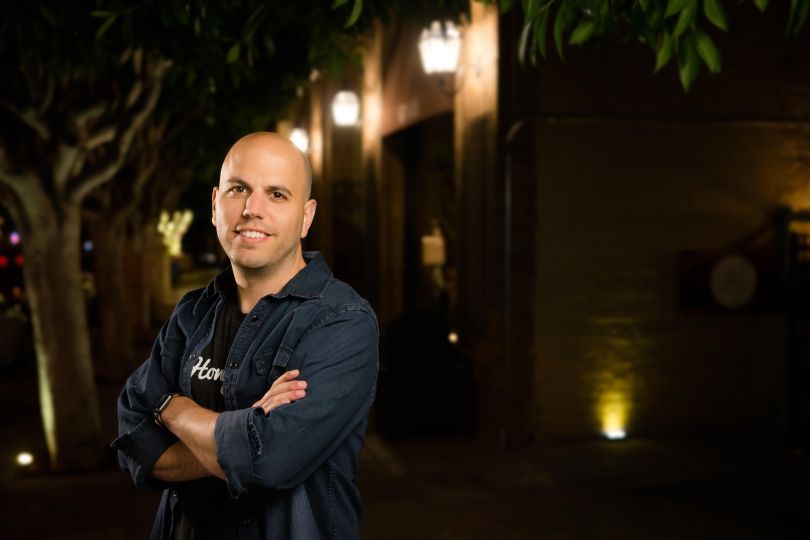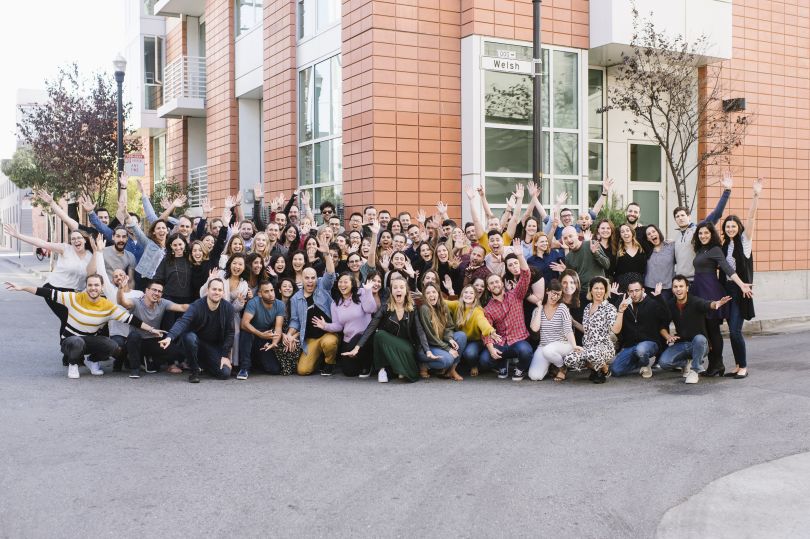
For years, Erica Liu Williams made her own healthy version of granola at home and sold it at her local farmer’s market. But like many of us, she never imagined she would turn her side hustle into a real business.
The reason Williams was able to make Gr8nola her full-time job has a lot to do with where she worked at the time. In 2016, Williams was head of accountability and alignment for HoneyBook, a San Francisco company that makes software for entrepreneurs, and her boss encouraged her to leave his company to pursue her dreams.
“It was a huge leap, but he helped push me off the ledge,” Williams said. “He was very supportive.”
Williams’ boss was HoneyBook co-founder and CEO, Oz Alon, who says he supports all of his employees leaving to start their own companies if they’re truly passionate about it. That’s because entrepreneurship is at the heart of HoneyBook’s mission. The Customer Relationship Management (CRM) platform was designed specifically for creative founders and freelancers to book clients, handle administrative work and manage payments in one place so they can spend more time on their core business.
Because HoneyBook is all about supporting entrepreneurs, Alon practices what he preaches. If an employee has a business idea they’re excited about, he encourages them to pursue it even if it means they leave his company. “You can’t communicate one thing to the world and do something different internally,” Alon said.
“It was a huge leap, but he helped push me off the ledge.”
The idea was born out of Alon’s own entrepreneurial journey, owning and operating a neighborhood bar in Tel Aviv. Although he had bartenders working for him, the tasks of running the business, like handling invoice payments and keeping the books, fell entirely on his shoulders. Alon realized he was spending 80 percent of his time on administrative tasks and hardly any time serving drinks and chatting with the local community — the reason he wanted to open a bar in the first place.

Alon’s wife, Naama Alon, also ran her own business doing web design and was experiencing a similar problem. The couple found they had no time to spend serving customers or growing their businesses because the admin work was all-consuming.
“I knew something had to change for the benefit of people like us,” Alon said. That’s how they got the idea to build a tool specifically for solo entrepreneurs, or ‘solopreneurs,’ like them.
In 2013, the Alons founded HoneyBook in San Francisco after their first investment from early-stage investor UpWest Labs. They spotted the solopreneur trend early and decided to capitalize on it. Their crystal ball has been accurate so far. According to a 2017 survey, 49 percent of Gen Z and Millennials say they’d like to leave their 9-to-5 jobs and start their own businesses within the next three years.
“We’re finding that as tech develops, more people have a passion for taking something and selling it,” Alon said. “They don’t want to have a huge business, they just want to make something from home.” But this type of person would have stacks of contracts and invoices, Alon said. HoneyBook consolidates those miscellaneous things that entrepreneurs have to deal with.
HoneyBook supports entrepreneurship among its employees in 3 critical ways:
-
Macro-management: employees have the freedom to exercise their expertise on the job, which inspires bold ideas, Alon said. They’re given the opportunity to move into different departments or roles if they want to, with support from leadership.
-
Startup Advisors: Most startups bring in experts just for executives but every HoneyBook employee has access to the external advisor program, which pairs them with industry experts. Advisors help employees grow in their current role but they can also help with professional development in other areas, including business leadership.
-
Free Product: Alon gives a free HoneyBook account to any employee who leaves to start their own business to help them succeed.
Williams said Alon gave her a lot of the courage to leave the comfort of a full-time job. While she doesn’t need to use HoneyBook’s software for Gr8nola (it’s primarily designed for creatives and freelancers, rather than product companies) she felt the weight of Alon’s support 100 percent. As she became more serious about Gr8nola during her time at HoneyBook, Alon recognized her passion and encouraged her to keep at it.
“In late 2017 I told Oz, ‘I’m not going to be here at the end of the year, I’m going to be running Gr8nola full-time,’” Williams said. Alon made her commit to that promise. “When you lose one of your first employees it’s very hard,” Alon said. But Williams was always so passionate about good nutrition, he could see that Gr8nola was the right path. “I told her it was time to go all-in.’”

They agreed that her last day would be Sept. 30 — a decision they arrived at together. “Looking back, I could’ve easily split hairs and questioned if I should stay two more months,” Williams said. But Alon gave her that extra push.
After working at HoneyBook for three years, Williams got the entrepreneurial experience she needed. She took advantage of Alon’s policy allowing employees to switch roles, moving from head of marketing to head of sales development, and finally to head of alignment and accountability on the business development team. Each role further prepared her to run her own company.
“The reality is, she’s building something great and we want her to succeed.”
At HoneyBook, Williams used to manage the quarterly and annual goal planning for the entire company and keep all teams aligned using the OKR system (Objectives and Key Results). Using OKRs has proven valuable in running Gr8nola because even though she’s a team of one, Williams is able to set clear objectives and meet measurable, strategic goals.
One piece of advice Alon passes on to any team member who wants to run a business is that you need to prioritize the customer.
“Serving is everything,” Alon said. “Our customers trust us with their time and money.”
Alon tells his employees that if you don’t like serving people, the job of CEO isn’t for you.

Supporting Williams and Gr8nola certainly demonstrates Alon’s commitment to his employees’ ventures, but it’s clear his commitment comes with no strings attached. Alon currently has one HoneyBook employee building email marketing software. Her target customer base? Creative entrepreneurs who run their own business.
“It’s almost a competition,” he said. “But the reality is, she’s building something great and we want her to succeed.”




